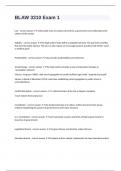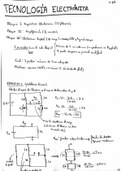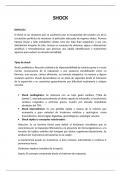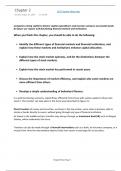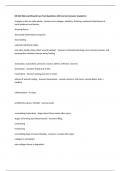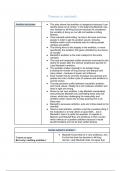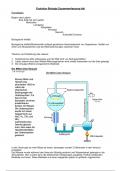Law - correct answer ✔✔enforceable rules of conduct set forth by a government to be followed by the
citizens of the society
Stability - correct answer ✔✔the legal system helps define acceptable behavior. The law limits activities
that hurt the public interest. The law can also require or encourage business practices that further social
or political goals
Predictability - correct answer ✔✔law provides predictability and uniformity
Social Change - correct answer ✔✔the legal system provides a way to bring about changes in
"acceptable" behavior
-Plessy v. Ferguson (1896): state racial segregation for public facilities legal under "separate buy equal"
-Brown v. Board of Education (1954): state laws establishing racial segregation in public school is
unconstitutional
Conflict Resolution - correct answer ✔✔a critical function of the law is dispute resolution
-Court system (formal process)
Constitution - correct answer ✔✔the fundamental law of a nation; written document (not always
written) establishing the powers of government and its basic structure
U.S. Constitution - correct answer ✔✔sets framework, powers and limits of federal government (3
branches of government)
Legislative Branch - correct answer ✔✔Congress (House and Senate); makes the laws
Executive Branch - correct answer ✔✔President and his cabinet; implements the laws (executive orders)
,Judicial Branch - correct answer ✔✔Supreme Court; interpret the laws
Statutes - correct answer ✔✔rules made by legislative bodies; written by legislative, signed into by
executive; typically commands or prohibits something, or declares policy (affects business behavior)
Administrative Agencies - correct answer ✔✔a governmental bureau established by Congress (or the
President) to execute certain functions of Congress
Common Law - correct answer ✔✔law made and applied by judges as they resolve disputes among
private parties; foundation of agency (employment), contact, property, and tort law
Legal Precedent - correct answer ✔✔to settle disputes that are similar to past disputes, judges look for
guidance by studying decisions form earlier recorded cases
Stare Decisis - correct answer ✔✔"to stand on decided cases"; the use of precedent by courts
Criminal Law - correct answer ✔✔concern legal wrongs or crimes committed against the state (Felony or
Misdemeanor)
Felony - correct answer ✔✔serious class crime punishable by imprisonment of more than a year
Misdemeanor - correct answer ✔✔lesser class crime punishable by a fine and/or imprisonment of less
than a year (not in state or federal penitentiaries)
Beyond a Reasonable Doubt - correct answer ✔✔in criminal law, the general rule that for a judge to find
a defendant guilty, there can be no significant doubt that the defendant violated a criminal statute
(higher standard of proof); jail time
Civil Law - correct answer ✔✔concerns the rights and responsibilities that exist among members of
society or between individuals and the government in non-criminal matters
, Preponderance of the Evidence - correct answer ✔✔in civil trials, the burden of persuasion to win a
verdict requires that the plaintiff prove its claim by having the majority (51%) or bulk of the evidence on
its side (lesser burden of proof); monetary fines
OJ Simpson Murder Case - correct answer ✔✔example of beyond a reasonable doubt (not guilty) and
preponderance of the evidence (guilty)
Federal Judges - correct answer ✔✔nominated by the President and confirmed by a majority vote in the
U.S. Senate; lifetime appointment; only removed by impeachment
State Judges - correct answer ✔✔elected, appointed or chosen by a method that mixes the two; serves
for a fixed term and forced to re-run
Doctrine of Judicial Immunity - correct answer ✔✔a judge is immune from suit for damages for judiciary
acts
Original Jurisdiction - correct answer ✔✔power of the court to take a lawsuit at its beginning, try it, and
pass judgment upon the law and facts ; disputes first brought and tried
Appellate Jurisdiction - correct answer ✔✔power of a court to revise or correct the proceedings in a case
already acted upon by a lower court or administrative agency
Federal Court System - correct answer ✔✔Federal District Courts - Federal Appellate Courts - U.S.
Supreme Court; Bankruptcy Court
Federal District Courts - correct answer ✔✔courts of original jurisdiction in the federal system; only
court that uses juries; jurisdiction does not cross state boundaries
Federal Appellate Courts - correct answer ✔✔appeal federal district court's decision
U.S. Supreme Court - correct answer ✔✔Highest court in the country; primarily an appellate review
court (rare); 9 judges

